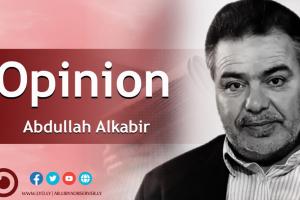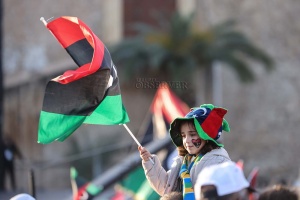By Abdullah Alkabir, Libyan political writer and commentator
Libyan situation poised to more escalation

The political scene is shifting towards further escalation, after an expected failure by the House of Representatives and the High Council of State, regarding the legal basis for elections.
In order to fill any vacuum - the UN envoy, Abdoulaye Bathily, could exploit, by reverting back to his previously announced initiative, and beginning to form the High Steering Committee- HCS Head, Khaled Al-Mishri, announced the simultaneous proposal of the HoR and the HCS, of elections’ roadmap, next week in an official session for both houses, although, the Speaker of HoR, Aqila Saleh, did not comment by either confirming or denying.
The draft circulated by the media projects the 6 + 6 committee’s laws as the legal basis for elections, despite objection from both chambers, and the request of Aqila Saleh to make some amendments to it. However, such amendments cannot happen without a constitutional amendment, because the 13th Constitutional Amendment provides for the referral of the outputs of the 6 +6 committee to the High National Election Commission (HNEC), without even discussing them with the HoR. Furthermore, making any amendments to it requires first, the approval of the committee, and making a constitutional amendment that gives the HoR the right to discuss the committee’s outputs, and amend them by either deletion or addition, and this will open the door for objection by the HCS, and therefore, what is expected of both scenarios is persistence of failure.
Al-Mishri's roadmap is rather more inclined to the formation of a new government than to a roadmap leading to elections. Most of the items, detail the process of running for prime minister, the required recommendations, terms in office, tasks, etc., with reference more than once to the possibility of elections’ failure.
Not much effort is needed to understand the true purpose of the roadmap, which is the formation of a new government, and the continuation of the HoR and the HCS in their positions, in an absurd repetition and recycling the same entities and personalities which are incapable of real consensus, ending the country’s crisis, by establishing a constitution on which elections will be based, and followed by building state institutions.
The initiative, however, is not expected to find local, regional, or international acceptance. There is no enthusiasm among the active parties in the scene to change the government at present, because they realize that government division is not the real reason for obstructing the elections, rather the absence of the will for change in the HoR and the HCS, and their inability to achieve a real consensual solution, and changing governments alone will not lead to elections.
In conjunction with Al-Mishri's announcement of the roadmap, Haftar showed up and delivered a speech through which he sent several messages, in what seems that he is impacted by some fragments of the blast in the relationship between Wagner groups and the Russian state, as well as the financial distress that befell him.
For the first time, he criticizes interference of the US ambassador, whom he dubbed as "so-called Norland", and held him and other ambassadors responsible for fueling the escalation, calling for their non-interference because the solution will be a purely Libyan consensus, as he claimed.
The bombing of the Wagner group at Al-Kharouba base, south of Al-Marj, would not have taken place without US green light, and it is a warning message to Haftar against trying to shut down oil production, with a strong possibility of a relative shift in the US position on Haftar, who will be greatly weakened if he loses Wagner’s support. The US and its allies seek to remove the Wagner from Libya.
Haftar's calls for fair distribution of revenues, by forming a committee to undertake this task, so that the people can benefit from their wealth, and his sharp attack, in a speech, on the government and the central bank, and his criticism of corruption in government institutions in Tripoli, claiming that he stands with the people in their suffering, reflects his dire need for more money to finance his project, to preserve his authority and influence, especially with press reports claiming that his debts to the Emirates and Wagner Company amounted to about seven billion euros.
However, these slogans about fighting corruption, fair distribution of wealth, and allegations of responding to the suffering of the people can no longer deceive anyone. Almost everyone, from past experiences, has come to realize that they are mere slogans used as a card for political pressure and blackmail, and once the blackmailer’s personal demands, are met, be they political or financial, such calls would cease, and oil would remain open.
All these developments are conducive to the state of conflict, and perhaps its intensification, with no hope of holding elections this year.
Disclaimer: The views and opinions expressed in this article are those of the writer, and do not necessarily reflect those of the Libya Observer



